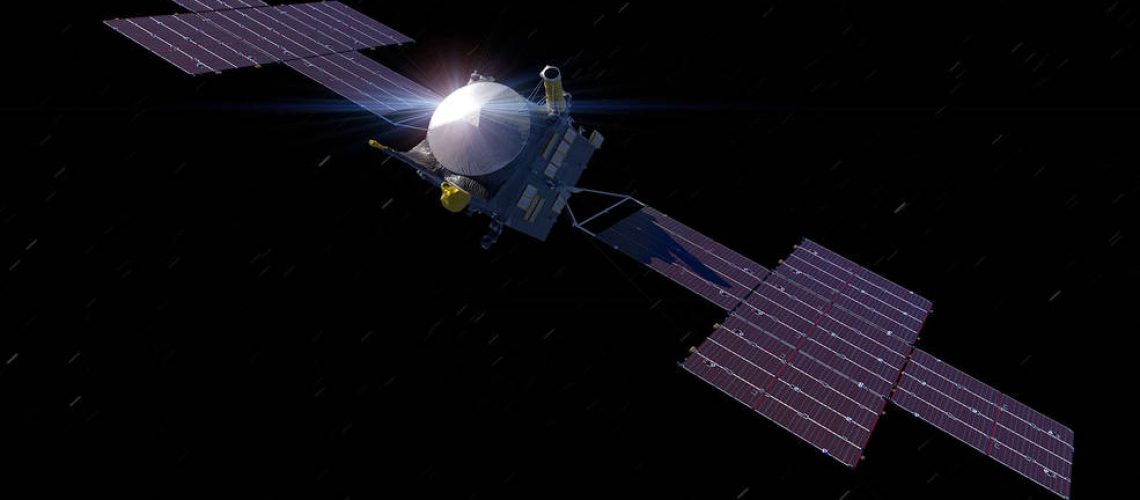The companies received a Small Business Innovation Research (SBIR) program Phase I award from the Air Force to develop a solar-heated crucible.
Above: Orbital and thin-film solar panel manufacturer Ascent Solar Technologies have received a contract from the U.S. Air Force to manufacture on-orbit thin-film solar systems.
The partnered companies received a Small Business Innovation Research (SBIR) program Phase I award from the Air Force to develop a solar-heated crucible to manufacture lightweight, thin-film solar photovoltaics (PV) for on-orbit applications used for Air Force and Space Force flight applications.
“We’re pleased to be partnering with Ascent to develop high efficiency, lightweight solar cells that can be manufactured in space,” says Rhonda Stevenson, chief executive officer of Above: Orbital. “This is the second SBIR contract from the U.S. Air Force and we believe it will lead to a larger, Phase II award. We are advancing robust on-orbit systems for both defense and commercial applications.”
The Air Force has a vital and urgent need to deploy lightweight and affordable solar modules across the globe as well as in space to meet operational power requirements for Uncrewed Aerial Vehicles (UAVs), forward operating bases and space-based power beaming.
“Above’s ability to provide tunable, artificial gravity, coupled with our manufacturing equipment cost and operations, create an ideal scenario for producing thin-film solar in space,” said Dr. Joseph Armstrong, chief technology officer, Ascent Solar.
Above: Orbital has already begun to make an impact in multiple commercial sectors with use cases ranging from in space servicing, assembly, and manufacturing to photonics and space tourism. Earlier this year, Above: Orbital received a $1.7 million SBIR award to develop an efficient, lightweight structure to support solar panels, power and communications antenna hardware systems, as well as other space infrastructure functions.
Formerly known as Orbital Assembly, Above: Orbital is a Huntsville, Ala.-based company that designs and operates space stations for on-orbit, lunar missions, and throughout the solar system.
Solar module producer Ascent Solar also expanded its offerings recently to include space mission applications. In April, the company announced a new product line, Space Hardware Development Kits (HDKs), developed previously under collaboration with the National Aeronautics and Space Administration (NASA) and Japan Aerospace Exploration Agency (JAXA).
The HDK platform integrates the company’s thin-film solar modules for use in accelerate mission schedules to boost spacecraft performance.
Benefits of the HDK system include:
- Engineered for Space: Solar cells encapsulated in space-rated laminate with on-orbit specific power and longevity, as demonstrated on orbit with NASA.
- Plug & Fly Solar Integration: HDKs engineered to easily interface with proprietary and commercially available components, including systems and buses.
- Modular Mission-Enabler: HDKs configurable to mission power, mass and delta-v budget requirements, including solar arrays optimized for LEO/GEO, and are lunar mission and deep space-capable.
- Sustainable Space Solar Solution: Robust arrays that provide reliable power, even if impacted by micro-meteoroid or orbital debris.
- Assured, On-Time Delivery: In-house produced solar modules, backed by MW of proven production capacity.



